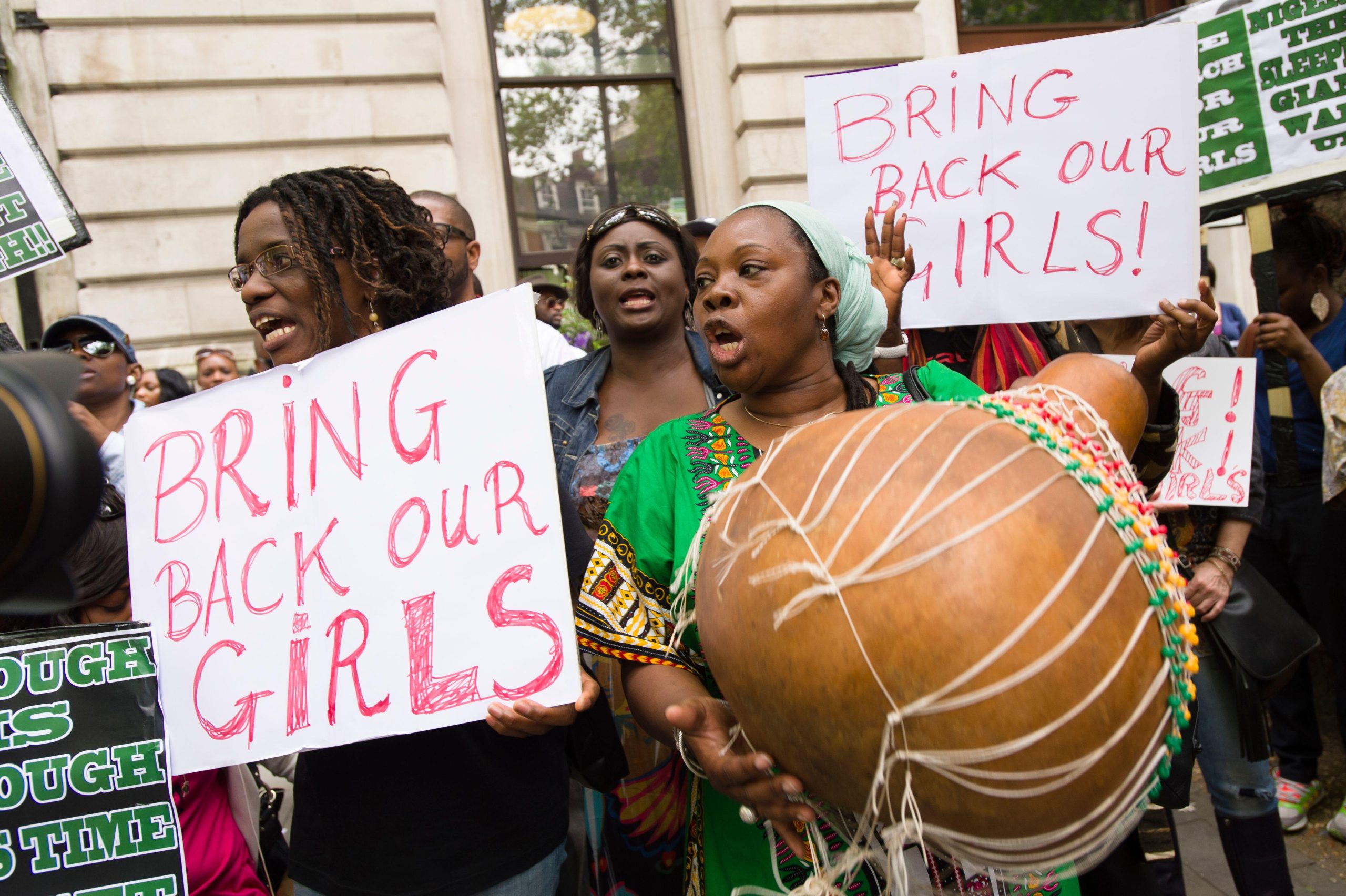
Chris Lange, FISM News
[elfsight_social_share_buttons id=”1″]
Several women abducted by Boko Haram terrorists in 2014 from their school dormitory when they were girls have been found alive and living with their captors.
The Nigerian Army recently reported the rescue of half a dozen of the 276 former schoolgirls whose abductions by the jihadist group drew worldwide condemnation, according to a Decision Magazine report.
Eight years after they were taken hostage from the Government Girls Secondary School in Chibok, Borno State, under cover of darkness, the women were found living in Boko Haram camps, along with children they gave birth to in captivity.
Christian Solidarity International (CSI), a religious liberty and human rights advocacy organization, said that between 2016 and 2018, 103 of the girls were freed following negotiations between the Nigerian government and the Islamic militants. Since then, however, little progress had been made in the rescue effort, until recently.
The Nigerian news website HumAngle reported that in recent weeks, several more young women, now in their 20s, regained their freedom amid “a wave of [Boko Haram] defections and movement” from their hideouts in the Sambisa forest into areas controlled by the Nigerian government.
Two of the abducted women, identified as Hauwa Joseph and Mary Dauda, now both in their early 20s, were found with their children by the Nigerian military in June. The women recounted the horror of being “distributed” to different Boko Haram camps as young girls and forced to marry jihadists. The women confirmed that more than 20 of their former schoolmates were still being held in a camp in the Sambisa forest.
A few weeks later, the Nigerian Army announced that three more women were rescued.
“Three of the Chibok girls are here with you, these girls are Ruth Bitrus, Kauna Luka, and Hannatu Musa,” said Waibi Shaibu, commander of the 7th Division, as reported by Africa News. “All of them were rescued by the troops of the 21 special armored brigade after operations that created an enabling environment for these girls to escape from their captors.”
On Aug. 13, the Nigerian Army announced the rescue of a sixth woman and her four-year-old child on Twitter.
BringBackOurGirls, a human rights advocacy group that has been instrumental in pushing Nigerian officials to locate and rescue the women, says that 112 Chibok girls are still missing and presumed to be living in Boko Haram camps as captive wives.
In “Bring Back Our Girls: The Untold Story of the Global Search for Nigeria’s Missing Schoolgirls,” journalists Drew Hinshaw and Joe Parkinson said that many of the abducted schoolgirls were Christians who were told they must convert to Islam “or [they] will be executed.”
“While the world demanded their return, the captive girls were under relentless pressure to convert to Islam and marry militants chosen for them,” they wrote, adding that the girls were “threatened with beheading or brutal slavery if they refused.” The girls, who were called “daughters of infidels” by their captors, were forced to take classes indoctrinating them into Islam and to memorize the Quran.
Nigeria ranks seventh on Open Doors’ World Watch List of the world’s most dangerous countries to live in, particularly for Christians. The nonprofit organization describes persecution in the West African country as “brutally violent.”
Nigerians, particularly those who identify as Christians, live under constant threat of violence from Muslim extremist groups including Boko Haram, the Islamic State West Africa Province (ISWAP), and Fulani militants.
